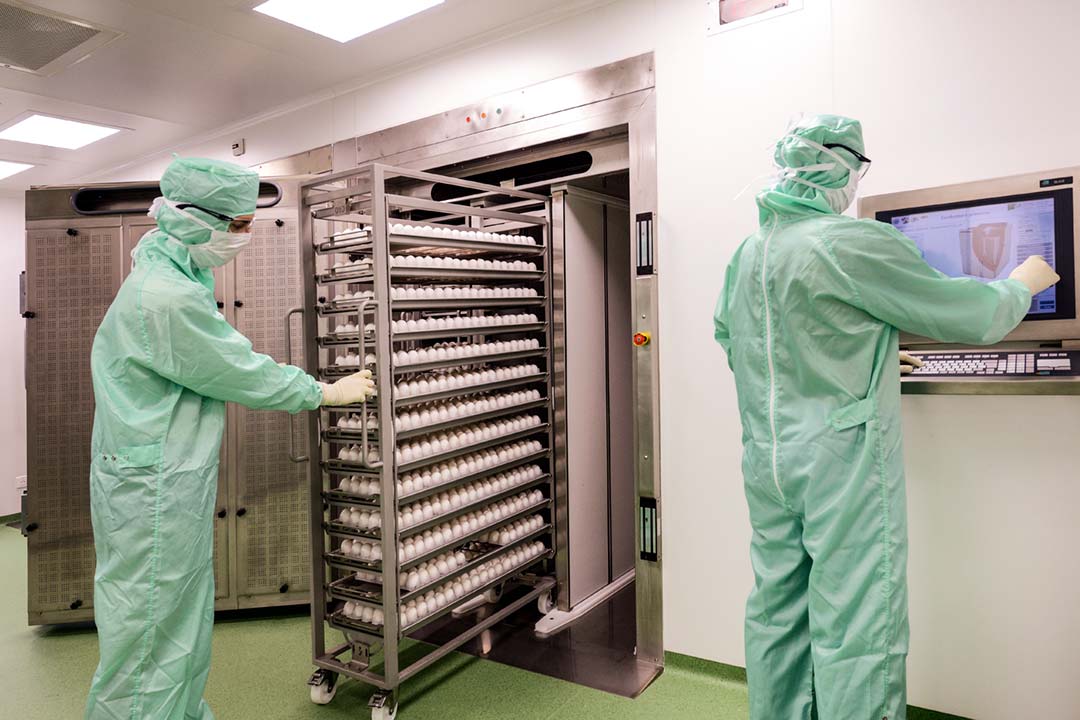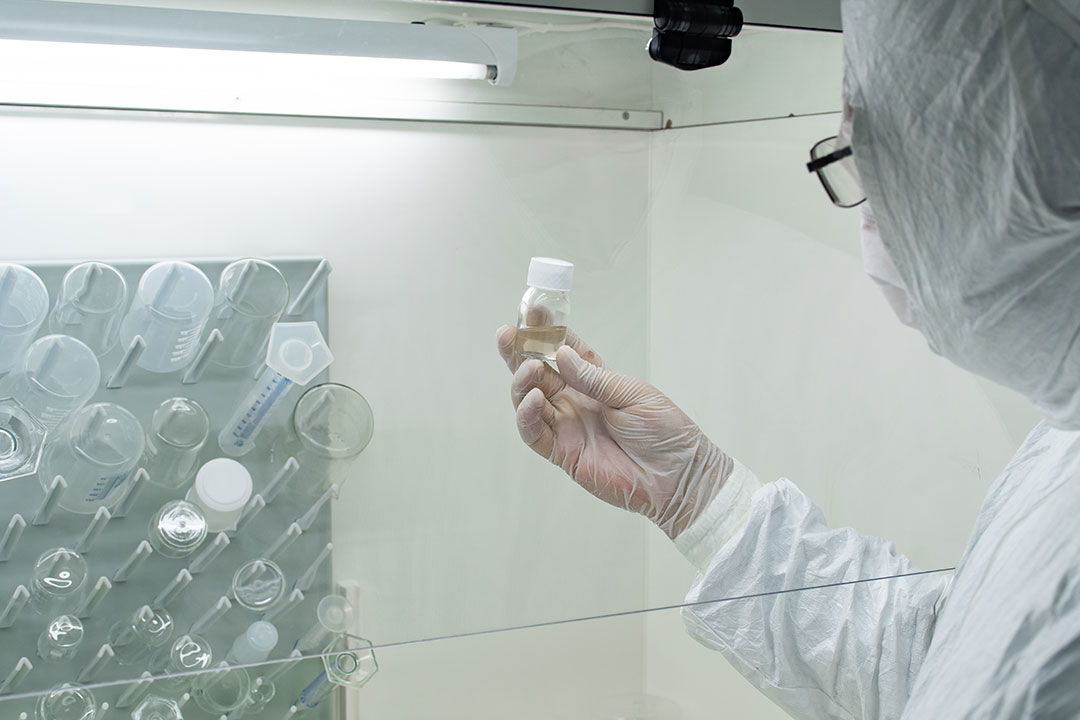How artificial intelligence could help the fight against COVID-19
Using big data and deep learning, machines and systems are offering new ways of responding to a pandemic.
- 19 August 2021
- 5 min read
- by Priya Joi

The use of artificial intelligence (AI) during a pandemic may sound like the futuristic plot of a sci-fi movie, but attempts have been made to use the technology in multiple ways since the start of the COVID-19 pandemic – often without actually being labelled ‘AI’. Artificial intelligence is essentially training machines to develop intelligence the way people do, using human characteristics such as planning, reasoning, adapting, problem-solving and creativity. In a fast-moving health emergency, AI systems could eventually be useful as they can be adapted to constantly changing data.
Researchers at MIT and IBM are now trying to find new treatments for COVID-19 using AI. They had already been fine-tuning this technology to look for new antibiotics.
Machine diagnosis
Diagnosis of COVID-19 can be tricky because its symptoms resemble those of other diseases, but it needs to be done quickly and correctly to make sure patients are given the right treatment.
Researchers in Mount Sinai, New York, built an AI system that could help diagnose patients with COVID-19 using an algorithm trained on more than 900 computerized tomography (CT) scans of lungs from Chinese patients. Diagnosing the disease based on lung scans alone wouldn’t necessarily be accurate because the scans may appear normal in the early stages of the disease and the lung problems caused by COVID-19 could resemble other diseases. Of course, this is why COVID-19 diagnostic tests such as SARS-CoV-2 antigen rapid diagnostic tests and PCR tests are so useful and why clinicians interview patients and conduct physical examinations to pull together a range of information to make a diagnosis.
To try to anticipate what such an evaluation would demonstrate, the AI system uses an algorithm that cross-references CT scans of a patient's lungs with data about age, bloodwork, symptoms, and possible contact with virus. The system became so effective that it diagnosed 17 out of 25 patients as being positive for COVID-19 even though their CT scans looked normal, which meant that radiologists had classified all of these patients as negative. Given further improvements and testing, in time this system could potentially become a useful aid to clinicians treating patients.
Another AI system developed by researchers at MIT claims to be able detect COVID-19 based on the sound of someone’s cough. One of the reasons the pandemic has spread quickly is that many people with COVID-19 can be asymptomatic. Their infection goes unnoticed as they are less likely to seek out testing and they pass it on to others unknowingly. But the MIT team has developed a programme using audio input from tens of thousands of coughs and self-reported clinical information from the crowd-sourced people with the coughs to try to detect differences in the way a symptomatic COVID-19 patient coughs compared with someone who doesn’t have the disease, even though it sounds the same to doctors. If researchers can demonstrate that the AI system is good at distinguishing COVID-19 from other respiratory infections among a representative sample of individuals with a range of confirmed diagnoses, such a system could eventually be a cheap and rapid way of identifying COVID-19 cases.
Have you read?
Scanning for COVID-19 medicines
Researchers at MIT and IBM are now trying to find new treatments for COVID-19 using AI. They had already been fine-tuning this technology to look for new antibiotics: growing antimicrobial resistance has already made critical antibiotics redundant or less effective, and since discovering new medicines is time-consuming, researchers have essentially been programming their systems to look for compounds that have the characteristics they need.
Last year, for example, MIT researchers found a powerful antibiotic that could kill several drug-resistant strains of bacteria in mice, while this year researchers at IBM developed a model for developing antimicrobial peptides. They did this by first giving the AI system a massive database of peptide molecules, which the system analyses to understand the connection between the molecular structure and their function or properties. Then, they plug in their list of ideal properties for a new molecule, for example a specific antibacterial function and low toxicity. This system could be now adapted to look for anti-COVID-19 molecules too, say the researchers. Such screening can help identify compounds that could eventually be useful in people if further laboratory, animal testing and ultimately clinical trials in humans confirm their effectiveness.
Until that happens, researchers at MIT are looking at even more pragmatic goal – finding existing drugs that could be repurposed to treat COVID-19. Since older people tend to be at higher risk of severe disease and death, they hypothesised that the virus would trigger gene expression differently in older people compared with younger people, and therefore determined which drugs were needed to affect specific genes and proteins triggered by infection. The researchers found that the protein RIPK1 was a promising target for COVID-19 drugs, and identified three approved drugs that act on RIPK1gene expression. These drugs could be useful against COVID-19 if further testing confirms their effectiveness in humans against COVID-19.
Confiding in chatbots
Since the start of the pandemic, misinformation and vaccine hesitancy have challenged an adequate public health response. Artificial intelligence may be able to help counter myths about COVID-19 or fears over vaccination. Enter chat bots.
AI chat bots have been developed by several groups around the world, combining psychology with infectious disease expertise and public health knowledge. They also integrate cultural contexts and local languages to develop a system that people will want to engage with.
A study in France this year showed that interacting with a chat bot can significantly ease vaccine hesitancy and make people more inclined to feel positively about vaccines and getting vaccinated. The researchers showed that before interacting with the chatbot, 145 of 338 participants had positive attitudes toward COVID-19 vaccines. This went up by 37% to 199 people after talking to the chatbot. Similarly, before interacting with the chatbot, 123 of 338 participants said they did not want the COVID-19 vaccine; after their chat, this went down by 20% to 99.
Although artificial intelligence in health care is still experimental, many efforts are underway to apply it to COVID-19 in intriguing ways.








